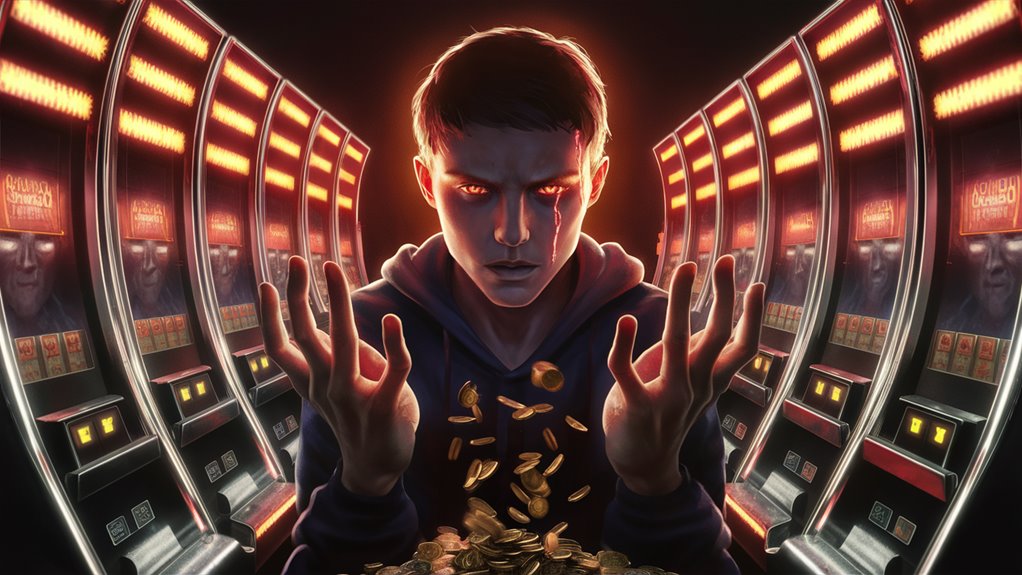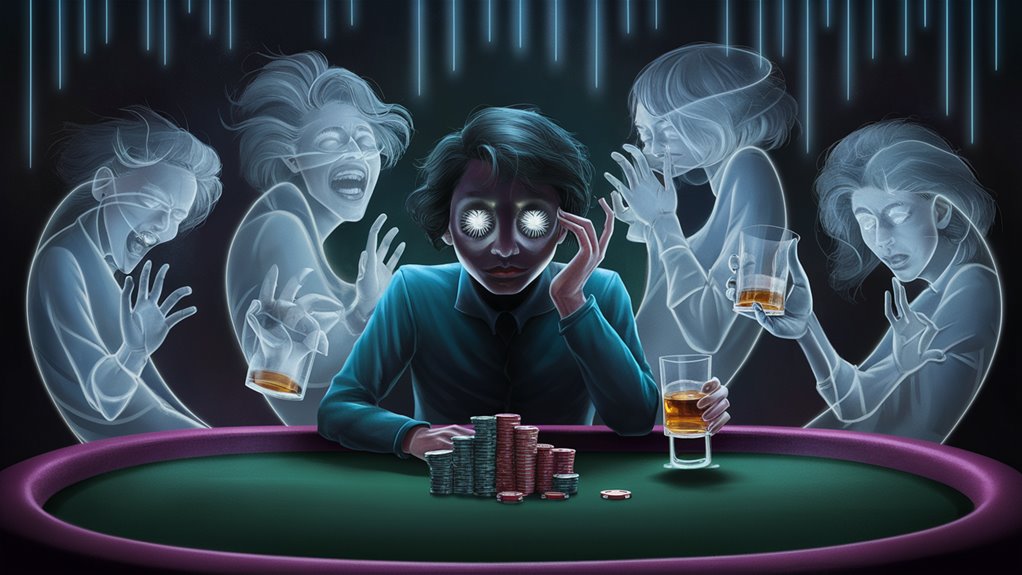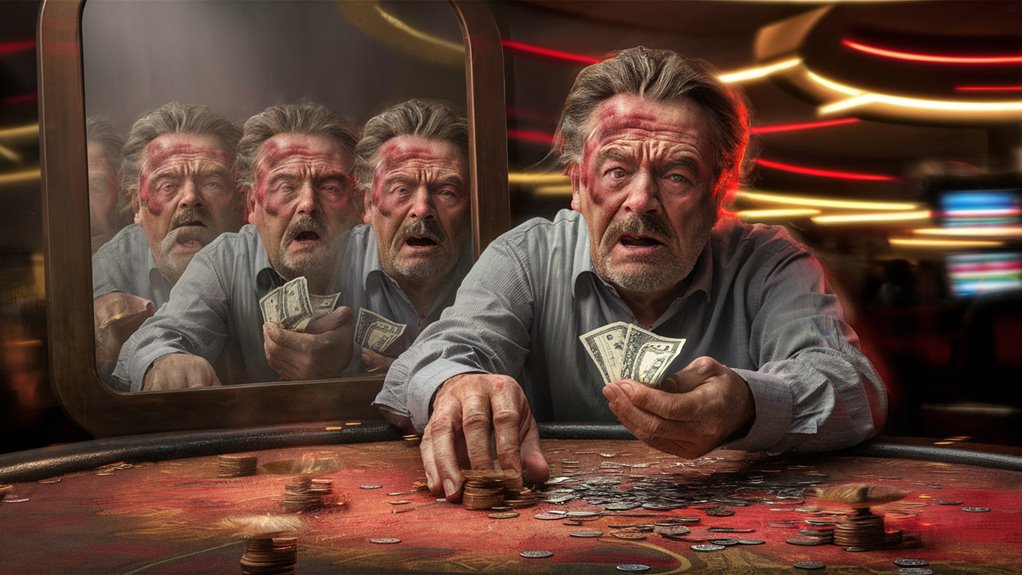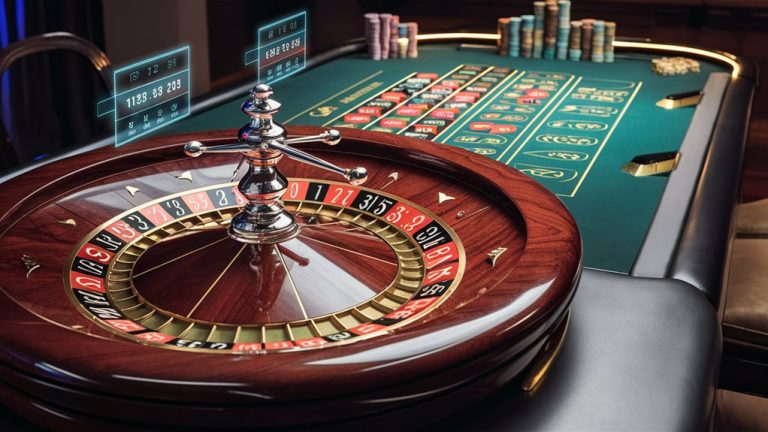
What Makes Gamblers Keep Going Back

The brain work of gambling habit is led by a complex feel-good chemical system that builds strong acts. When gamblers bet, their brains let out dopamine even if they don’t know if they’ve won, making a cycle of wait and joy. This is why gambling pulls you in more as you keep doing it.
Brain Paths in Gambling
Close misses hack the same brain ways as a win does, giving a fake sense of nearly winning that makes you keep playing. The way of bits of wins works great at keeping the addiction strong, even more than steady wins, as up and down wins keep you excited and involved. https://maxpixels.net/
Mind and Social Bits
Seeing it as normal and easy to get to online have made gambling a usual thing to do, while mind tricks like getting away and thinking you are in control keep you in the loop. How one acts, mainly liking risks and loving rewards, are key in keeping the gambling actions going.
What Makes Gambling Stick:
- Dopamine comes out when you wait
- Brain lights up from close misses
- Win patterns that are not steady
- Getting to platforms online
- Tricks your mind uses to escape
- Looking for risks
This mix of brain, mind, and social bits creates a strong framework that keeps drawing gamblers back to bet, even when they know it could be bad.
The Dopamine Feel-Good System
Knowing the Dopamine System in Gambling
The Brain Work of Gambling Joy
When you bet and win, the brain lets out a big wave of dopamine – the main brain chemical for pleasure and seeking rewards.
This chemical loop makes you keep gambling, even when you know there are risks.
Waiting and Near-Misses
The dopamine system works not just during wins but also with near-misses and while you wait for a win.
When you wait for a slot machine to stop or see where the roulette ball goes, your brain lets out dopamine before knowing what will happen. This waiting reaction gives a big rush that makes you want to keep gambling.
The Power of Bits of Wins
Random win patterns keep gambling habits better than steady wins because they make the brain light up big time.
This brain setup teaches the brain to look for unsure rewards, making it hard to stop. The mix of waiting, sometimes winning, and near-misses make a strong brain effect that keeps gambling habits strong and makes you take part again and again.
Main Brain Bits:
- Dopamine comes out with wins
- Brain gets ready before knowing results
- Win patterns that are not steady
- Near-miss mind tricks
- Stronger reward paths
Near-Misses and Fake Hope
The Mind Work of Near-Misses in Gambling: Understanding Fake Hope
The Big Push of Near-Miss Moments
Near-misses in gambling are one of the strongest mind tricks that make you keep playing.
These moments wake up special brain responses, making you feel like you’re getting close to a win.
Modern slot machines show this with planned events where signs match up well, except the last one, making you miss by just a bit.
Brain Response and Reward Roads
The reach of near-misses comes from their power to turn on reward roads in the brain like a real win, even though you lose.
This makes a clever pattern of stronger acts where the brain gets ready based on close tries.
The thinking setup starts to see these close tries as signs of getting better or being able to tell what will come next.
Running After Losses and Wrong Thoughts
Near-miss moments make a very bad kind of false hope that can start running after losses.
People often see these close tries as signs that a win will come soon, not seeing that each gambling try is its own thing.
This wrong thought becomes a real problem when mixed with the brain chemical response – the dopamine that comes out with near-misses, making a strong cycle of continued play even with growing losses.
Running After Losses
Knowing the Mind Work of Running After Losses in Gambling

The Bad Cycle of Running After Losses
Running after losses is one of the most dangerous acts in gambling, where players keep betting more or play longer in tries to make up for lost money.
This bad cycle mixes strong mind tricks and feelings that make you overlook smart choices.
Mind Tricks Behind Running After Losses
The idea of hating to lose is key in keeping the chase going. This mind rule shows that the hurt from losing money hits harder than the joy from the same amount of wins.
During such chases, the brain starts strong stress responses, letting out cortisol and adrenaline, which really mess up your thinking and choosing skills.
Proof and Risks
Studies clearly show that running after losses makes financial hurt much worse through:
- Betting more money
- Leaving smart money management
- More bets on high risks
- Playing more than planned
The gambler’s false belief often makes this act pattern stronger, keeping the wrong thought that past losses somehow make future wins more likely. This wrong thought leads to larger bets and more money at risk.
Prevention and Getting Better
To break free from running after losses, you need to take several important steps:
- Set clear loss limits
- Keep detailed records of gambling
- See early warning signs
- Get professional help for gambling habits
- Find other ways to deal with stress
Social and Cultural Bits
Social and Cultural Bits in Gambling Acts
Cultural Mix Into Gambling
Social and cultural bits really shape gambling acts around the world.
In some places, gambling is seen more as a usual group act and not as something risky.
Old games like mahjong are a key family time in Asian lands, while sports betting is a big part of American football culture.
Impact of Friends and Social Media
Influence from friends is a big driver in starting and keeping up with gambling.
Seeing gambling in your family and friends a lot makes it more likely for you to join in and see it as okay.
Today’s online spots and ads push this more, with apps for sports bets and online casino deals making it very easy and usual to reach.
Cultural Beliefs and Social Push
Old beliefs around luck, fate, and moving up in life really shape how people act when gambling.
Many places link gambling with ideas of luck and a chance for moving up in society.
Places to gamble often are spots where community meets, making social ties and parties. This makes a complex network of social pushing bits that lift gambling from just a personal choice to an act of cultural meaning.
Main Social Bits:
- Being okay in the community
- Family habits
- How friends group acts
- Push from digital media
- Cultural belief ways
- Spots where people gather
Risk-Liking Mind Bits
How Liking Risks Links to Gambling Acts
How Personality Plays Into Gambling
Liking risks shows up as a clear sign of how much and how strong people will gamble.
People who seek thrills are drawn to gambling, driven by their love for new and exciting things.
Main Personality Bits in Gambling Acts
Acting without thinking is a key trait that pushes problem gambling.
Studies show that people with less control over their impulses often take part in riskier bets, betting more money and playing more often.
The mix of loving rewards and not minding risks sets up the best chance for too much gambling.
Brain Proof and Risk-Liking
Brain studies show clear patterns in risk-liking minds, mainly showing more action in brain reward spots during gambling. These people often show:
- More focus on possible wins
- Less worry about possible losses
- Less stress on bad outcomes
- Stronger reward systems working during bet choices
Long-Time Impact and How It Starts
Risk-liking traits often start early in life and stay steady through grown-up years, serving as clear signs of how gambling acts might grow and giving clues for possible ways to help.
This holding on to personality traits helps a lot in knowing how gambling travels through life and what might help to cut it.
Breaking the Gambling Cycle
Breaking the Gambling Cycle: How to Get Out
Knowing and Noting Triggers
Getting better from problem gambling needs a clear plan to stop old habits.
The start of getting better is seeing what sets off the need to gamble – feelings, certain places, or times that make you want to gamble.
Making Strong Blocks
Putting recovery into place needs real things to block gambling:
- Keeping out of gambling places
- Blocks on betting sites online
- Finding other things to do when risks are high
- Setting up actions that give good feelings without gambling
Smart Money Ways
Handling money well is key in getting better:
- Giving money handling to trusted family
- Paying bills without having to think about it
- Planning how to use money How Streaming Changed the Gambling Industry
- Watching how money is spent
Building Help Networks
Staying on the path of getting better needs a full help system:
- Getting help from gambling experts
- Joining groups with the same problems
- Bringing family into therapy
- Having someone to keep you in check
Looking at Deep Issues
Long-time getting better needs looking at the deep reasons:
- Therapy for wrong thinking ways
- Help for other problems like worry and sadness
- Care that knows past hurts
- Building new ways to deal with stress
Stopping a Fall Back
Build a strong system to prevent falling back into old ways through:
- Going to support groups often
- Keeping up with therapy
- Having ways to manage what sets off gambling urge



